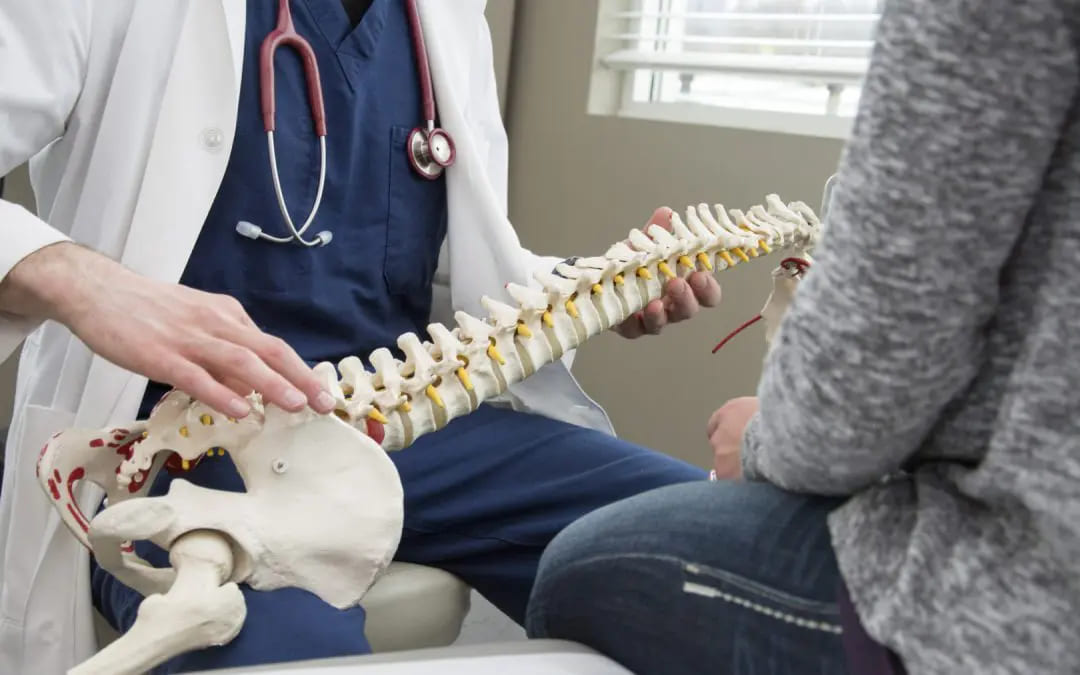11 Jan 2023 | Jennifer
Difference Between Herniated And Bulging Disc
Herniated discs and bulging discs are two different issues and both cause back problems that result in back pain. However one usually results from an accident, whereas the other develops as you get older. A back pain specialist can determine the difference through an evaluation and diagnostic testing. Risk factors for a disc issue include trauma, aging, and poor lifestyle choices.
Visit Dallas Back Clinics if you have back pain or are suffering from a herniated or bulging disc as we have a specialist to treat them.

Herniated disc
A herniated disc is an opening that develops when the outer layer of the disc is torn and the interior may start to seep through this opening. The contents of a herniated disc could spread to the spinal cord and spinal nerve roots and result in pain and discomfort.
As sometimes herniated discs cause no problems, you may not be aware that you have herniated discs. You may have pain around the slipped disc as it puts pressure on the surrounding soft tissue and nerves. You might also experience a burning, tingling, numbing, or weakness in that area of your back because the contents may press against the nerves. In severe instances, this can result in disc sequestration, in which the herniated material fully separates from the nucleus pulposus's body, and fragments overflow into the areas around the spine. In addition to nerve compression, this leaked fluid can result in an inflammatory reaction in the tissues around it.
The pain radiates to your buttock, calf, or thigh if you have a herniated disc in your lower pack. You may experience similar symptoms in your arms if you have a herniated disc in your neck or upper back.
The following are the symptoms of a herniated disc :-
- Pain that travels down an affected limb
- Tingling and numbness in the affected limb
- Muscle weakness in the affected areas
What are the causes of a herniated disc?
As you age, your discs lose flexibility, moisture, and are more prone to injury. This process is called degeneration. Degeneration can cause your disc to be injured when you lift a heavy object improperly or turn suddenly.
Your risk of developing a slipped disc is increased by a number of risk factors, such as :-
-
Overweight :- Extra weight puts pressure on the lower back discs.
-
Having a job that requires you to do repetitive tasks :- Herniated disc risk can also be increased by repeated lifting, pushing, pulling, side bending, and twisting.
-
Smoking :- It is believed that smoking reduces the oxygen supply to disks, accelerating their decomposition.
-
Frequent driving :- The vibration from the motor vehicle engine combined with prolonged sitting can put pressure on the spine.
-
Genetics :- Genetics plays a role in the development of herniated disks in some people.

Bulging disc
In a bulging disc, the content remains inside the disc. But you might lose some of the contents of the disc, and it won't be as flexible as it once was. And the disc may change shape. Without breaking, the disc may protrude into the spinal canal. Both the nucleus pulposus (inner part of a disc) and annulus fibrosus (the outer casing of the disc) can undergo structural and biochemical changes due to aging, repetitive stress, and trauma. The bulging nucleus pulposus deforms the annulus fibrosus and puts pressure on surrounding nerves during the degeneration phase, which results in pain, numbness, or tingling.
There's a possibility that you won't notice any bulging disc symptoms. It doesn’t protrude as a herniated disc.
What are the causes of a bulging disc?
The outer shell of the disc weakens with age and the content of the disc pushes towards the outer edges, which causes the disc to expand. A bulging may occur on one side or both sides.
A bulging disc has the same risk factors as a herniated disc. The most common conditions that lead to bulging discs are spinal injuries, bone spurs, and degenerative disc disease.

 Telehealth Visits Available
Telehealth Visits Available
